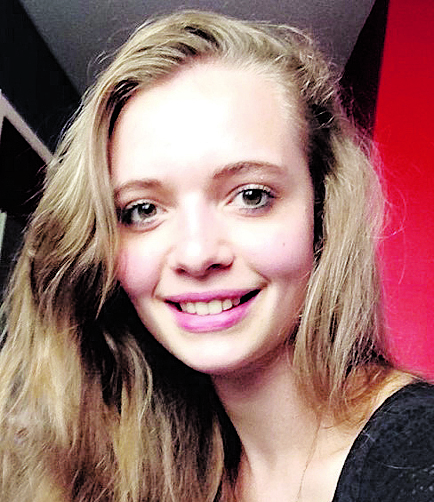Sophia’s disappearance comes to court
And quiet is crucial for Sophia, who is far from crazy. She was ill when she disappeared and needed care. Some people have heart conditions, others diabetes. Sophia is bipolar. Often talented high achievers. Just Google famous bipolar people.
Sophia’s disappearance comes to court
______________
OPINION
By Marije Slijkerman
On a Wednesday evening in 2015, our daughter and sister Sophia disappeared in Murchison Falls National Park. A medical student, she had come to Uganda to work as an intern at Rubaga Hospital in Kampala.
After completing that eight-week internship, she went on a trip around the country with two Dutch students and a Ugandan driver/tour guide. On day six, she vanished. The calendar read: October 28, 2015.
To this day, her disappearance remains a mystery that has dominated our lives ever since. In my unrelenting search for Sophia, for answers, I have made many journeys to Uganda. Always hoping that the many questions we have will be answered one day, when asked by the right people.
On Monday, July 7, I testified in Buganda Road Court in the case that the prosecution opened against Sophia’s tour guide as he was working unlicensed when he took Sophia and her companions on that trip.
Newspapers reported that two witnesses were heard in earlier court hearings. It is painful to read what was reported about her, especially for us, who know her so well.
Sophia Koetsier.
I can’t tell how accurate these testimonies are. Several years later, I was contacted by an English lady who was in Kidepo and interacted with Sophia that night. She described her as ‘responsive, apologetic for making noise, polite and very articulate’, but at the same time, Sophia struck her as very vulnerable. She and her husband expressed their concerns to both the warden and driver.
Not until the day of her disappearance did I hear about Sophia not being well. At 6:30 pm, I was called by one of the travel companions. She told me they worried about her and wanted to return to Kampala the next day. Some two hours later, I was told she was missing.
It is very hard for us to understand why the driver took them to the student centre last night. The prior night, instead of going to Kitgum, the driver took them to Gulu instead, a more resourceful place, as he later said. Perhaps heeding the advice he had received at Kidepo that morning.
Very cheap but no security, no nothing really, unfit for tourists. Thereby creating a situation that maximised the chance for accidents to happen. Painful, difficult, incomprehensible.
As mentioned, it pains us to see Sophia being described as a crazy girl, and I feel the urge to explain her bipolar condition, which I believe is not well understood.
Bipolar is not a mold that everyone with this diagnosis fits into. On the contrary, the spectrum in which it is manifested is very wide. Most bipolar individuals experience mood swings, but 10 to 15% only become manic, never depressed. Sophia belongs to that category, which in essence makes her unipolar.
Only very occasionally does she experience a hypomanic or manic episode. They are short, and she recovers fast. It has never set her back in school, study or work.
She was fine when she left for Uganda; her colleagues in Rubaga Hospital were full of praise for her ability to learn fast and her willingness to help with anything.
Manic episodes occur when there are a lot of incentives and new experiences and not enough rest to process everything. The latter was clearly the case in those eight weeks in Kampala, living in a very full and busy house and getting up early to go to work. As she wrote in one of her extensive weekly reports: ‘It’s fun to live in a student house but it is never quiet’.
And quiet is crucial for Sophia, who is far from crazy. She was ill when she disappeared and needed care. Some people have heart conditions, others diabetes. Sophia is bipolar. Often talented high achievers. Just Google famous bipolar people.
The writer is the mother of Sophia Koetsier contact@findSophia www.findSophia.org